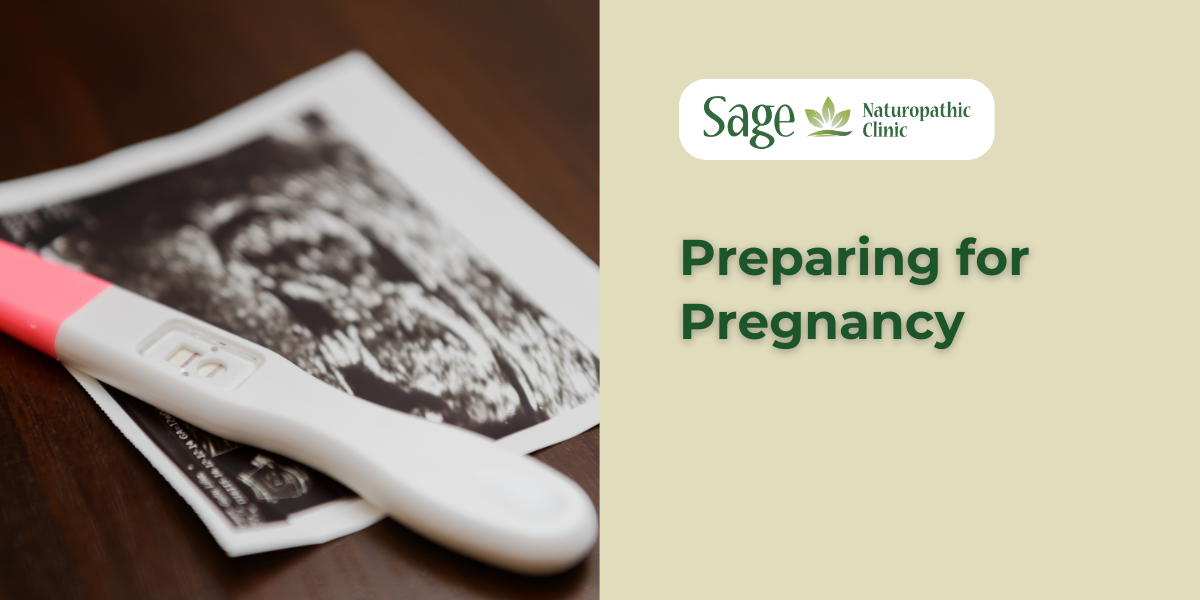
Are you planning on growing your family this year? When possible, I recommend starting to prepare your body and optimize your fertility about 3-6 months in advance. Preconception care almost always focuses on women, but men benefit from preconception care as well. After all, sperm is 50% of the equation!
My first recommendation for my patients trying to get pregnant is to start with the basics – improving your nutrition, moving your body, and reducing your stress.
Nutrition
A balanced diet high in lean protein, vegetables, fruits, and healthy fats is important for optimizing fertility. The goal is to adequately fuel your body so your body has the building blocks to produce hormones, healthy eggs, and a thick uterine lining. For protein, opt for fish, seafood, poultry and plant proteins more often. Eat a variety of vegetables and fruits to help to increase fiber and antioxidants. For healthy fats, include things like olive oil, avocado, nuts, seeds and eggs in your diet regularly to help reduce inflammation.
Physical Activity
If you’re not already physically active, a perfect time to start is while you’re prepping for a pregnancy. Exercise helps to increase blood flow to your reproductive organs, improve your blood sugar, and increase your strength/endurance – all of which are important for fertility as well as during pregnancy and labour.
Stress Management
Stress is a large piece of the fertility puzzle that’s often an afterthought. If your stress level is consistently high, your overall health and fertility suffers. Studies show that high stress levels prolong the length of time it takes to achieve pregnancy. For my high stress patients, we work on decreasing stressors where possible and implementing stress management strategies, such as meditation, therapy/counseling, yoga, etc.
Other
Ideally, a few basic supplements should be started 3 months before pregnancy:
- A good quality prenatal with methylated folate
- Vitamin D (dose based on blood levels of vitamin D)
- Omega-3
Lastly, consider basic fertility lab work! The standard recommendation is to try to conceive for 6-12 months before doing any fertility testing, but I recommend that my patients complete at least some basic testing sooner rather than later. Especially if you have any hormonal concerns, such as irregular or painful periods. For my patients, this typically includes testing the sex hormones, thyroid, and vitamins levels. Often, I’ll run additional lab tests based on your personal health history. This way, if any of your test results are outside of optimal, we can address it right away and help you achieve a healthy pregnancy sooner!
Dr. Lisa Kachaniwsky ND
Sage Naturopathic Clinic